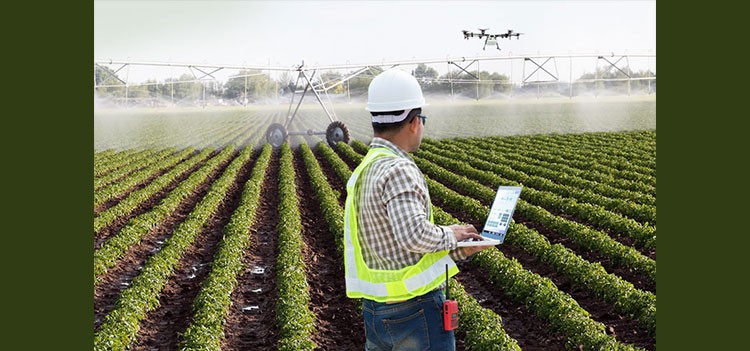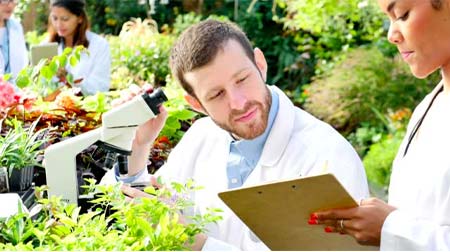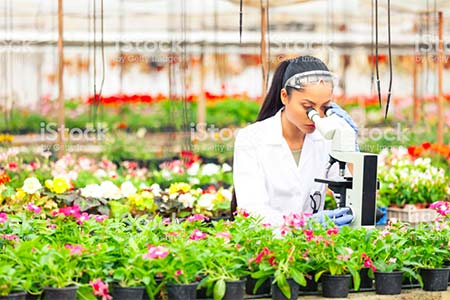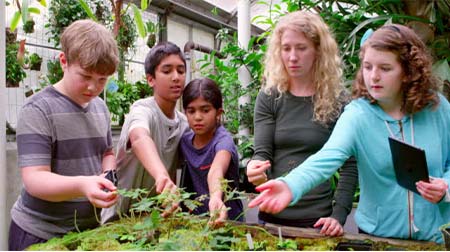Botany is considered as one of the most happening careers in recent years. The past decade saw an increase in demand for botanists and the advancement in medical sciences has resulted in an increase in research in the field of botany. Today, many drugs are being developed and botanists play a crucial role in these researches.
There are a good number of job roles available for B.Sc Botany students in the life science companies. The increase in investments in this field has given rise to many new job roles that require skilled professionals to handle.
The present article discusses a few of them that are very important and offer better career growth for the students. However, a master’s degree will definitely increase the scope of job roles, so it is always suggested to join for a master’s course to explore more lucrative careers.
Anyways, let’s discuss the jobs in detail
Soil Scientist
The soil scientists are required to perform the soil tests and are also required to analyse what type of plants that can be planted in the given particular area. They are also required to judge to consider the plant trials on the bases of the fertility and nutrition levels of the specific area.
Role of the Soil Scientist
As a soil scientist one is required to gather, interpret and evaluate information about the chemistry, biology and physics of the soul. Using the information obtained from the analysis the soil scientist is required to inform and influence on diverse issues like:
- Agricultural production
- Biodiversity
- Climate change
- Human health
- Land remediation, etc
Responsibilities of the Soil Scientists
As a soil scientist one is needed to:
- Apply knowledge of botany and soil science, including the fundamentals of the subject, such as biological chemical and physical properties of soils and their spatial and temporal variability across the landscape
- Carry out field work, including the collection of soil samples from a range of environments
- Produce maps of soil types and their distribution
- Monitor or supervise laboratory research
- Conduct laboratory analysis of soil samples and research experiments
- Complete paperwork and catalogue findings
- Conduct laboratory analysis of soil samples and research experiments
- Write research reports and make presentations on findings, including scientific research papers and non-scientific client reports
- Interpret science to inform policy
- Integrate soil science knowledge into aspects of land management and ecosystems
- Keep up to date with developments in soil science and related areas, as well as environmental issues and legislation changes that may affect your work
Agricultural Consultant
The agricultural consultants give specialist advice to agricultural and farming businesses to help them with technical, financial and commercial matters. They are also responsible to guide the clients to follow scientific cropping techniques that increase the yields
Role of an Agricultural Consultant
As an Agricultural consultant one will be responsible to work and ensure that the client’s agriculture business or enterprises are running as efficiently as possible. The agricultural consultant will be aware of the business and legislative implications of the advice given. The agricultural consultant is required to perform a thorough survey of the fields and advise the clients about the crops that can be grown on that particular area.
Responsibilities of an Agricultural Consultant
As an agricultural consultant one is responsible to:
- Visit clients to identify and evaluate their business and technical requirements
- Assist the clients with business planning, planning applications, government grant applications, legislative advice and new business ventures
- Collect and analyse data crop yield and financial reports to measure performance
- Prepare or modify business or operating plans for agriculture plantations
- Organise and conduct field trials of new crops
- Plan and implement improvements for the client such as using more effective and pest control measures or finding more efficient ways to keep livestock
- Organise presentations for professional bodies and other interested groups
- Write advisory leaflets technical notes and possibly press releases and articles
- Market and promote consultancy services to new customers while maintaining existing client relationships
- Research and keep up to date with any relevant developments in agriculture
Plant Breeders
Plant breeders work on improving the quality and performance of existing agricultural and horticultural crops and create new varieties of plants. They are required to carry out research and come up with new traits of plants and seeds.
Role of a Plant Breeders
As a Plant breeder, one is responsible to develop useful traits in plants, such as disease resistance and drought tolerance. As a Plant Breeder one is responsible to improve characteristics of the plants such as appearance, size, structure, etc.
Responsibilities of a Plant Breeders
As a Plant Breeder one is needed to:
- Produce research aims and objectives and predict the cost of the work
- Research methods and techniques for improving plant breeding
- Identify and select plants exhibiting desirable traits, based on natural genetic variation
- Cross plants to produce new breeding material for field and glasshouse trials
- Analyse and scientifically assess plant breeding in laboratory and field trials and select the best varieties
- Multiply up and produce virus free plants
- Maintain detailed records throughout the research and development cycle
- Monitor the activities of the competitors and work towards producing efficient plant breeding technologies to counter them
- Respond to enquiries from farmers, agronomists and other professionals
- Keep up to date in the fast-moving area of science and translate ideas from scientific literature into new approaches to breeding problems
Field Trials Officer (Plant Harvesting)
The field trial officers (plant harvesting) are responsible to gather, process and analyse information vital to the safe development of various products. They are required to take up a thorough survey of identified areas on behalf of the company and ensure that conditions are ideal for conducting plant field trials.
Role of the Field Trials officer (Plant Harvesting)
As a field trials officer (plant harvesting) one is responsible to develop and manage research trials, monitoring the effects of experiments on plants in fields or labs. They may be involved with the entire process or in just one particular stage of the research procedures.
Responsibilities of Field Trials Officer (Plant Harvesting)
As a field trials officer (plant harvesting) one is required to:
- Plant, prepare and organise field trials for newly developed plants in labs or fields
- They are responsible to write research proposals for conducting plant trials
- Monitor field conditions in close detail
- Apply chemical to trials to observe the effects of them on plants
- Design and develop experiments for plant trails
- Undertake detailed statistical planning of the plant trials
- Balance the demands of new experiment designs with site limitations
- Gather and accurately record data from the observations from field trials
- Record and process results using specialist softwares for analysis of plant trails
- Coordinate with technical development team at different levels
- Negotiate the trials requirements with students in educational establishments
- Work to high level of confidentiality and protocols
- Keep updated with latest standards and regulations that are being framed for field trails at international levels
Concluding words
The above-mentioned job roles are just a few to number from the available huge bunch of job roles for B.Sc Botany students. It is always advised to pursue a master’s when it comes to botany subjects. Generally, the demand is always high for the students from master’s degree when compared to undergraduate degree of any area of study.
Today more and more trials are conducted for developing the disease resistant plant breeds and efforts are in process to make them more sustainable and environmentally friendly. The increase in awareness about environmental pollution has forced companies to come out with plants that are disease resistant and drought tolerant. Many fertilizer companies are developing bio fertilizers and they all require skilled botany students to take up these tasks.
So, the students who are interested in life sciences and plants can join the B.Sc Botany course and can easily find good jobs after the completion of their course.





